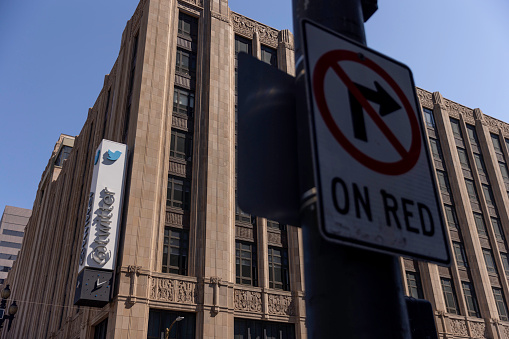Twitter’s famous Blue Bird logo—affectionately known as “Larry”—has officially flown from its original nest. The iconic sign from Twitter’s former San Francisco headquarters was recently auctioned off, fetching an impressive $34,375. The sale marks a significant milestone in Twitter’s transformation under Elon Musk, who renamed the platform “X.”
But why was the logo auctioned, and what made this simple bird so valuable to buyers? In this article, we’ll explore the full story behind the Twitter Blue Bird logo auction price and its broader meaning.
The Story Behind Twitter’s Iconic Blue Bird
The blue bird logo first debuted in 2012 and quickly became one of the most recognizable icons worldwide. Officially named “Larry,” this charming bird was more than just a logo—it symbolized Twitter’s vision of free speech, rapid communication, and global connectivity. Twitter co-founders intentionally named the logo “Larry” after the legendary basketball player Larry Bird, symbolizing limitless possibilities and aspirational excellence.
However, the auctioned item wasn’t the digital logo users saw on their phones or computers—it was the giant, physical sign proudly displayed on Twitter’s San Francisco headquarters building. Measuring an impressive 12 feet tall, 9 feet wide, and weighing approximately 560 pounds (about 254 kilograms), this physical sign illuminated Twitter’s headquarters, becoming a local landmark for nearly a decade.
Elon Musk’s Acquisition and the End of an Era
Twitter underwent massive transformations after billionaire entrepreneur Elon Musk purchased the platform for $44 billion in October 2022. Musk’s vision went far beyond simply owning a social media network. He soon rebranded Twitter as “X,” signaling a total shift away from the previous identity.
Under Musk’s leadership, Twitter dramatically reduced its workforce, restructured the company, and eventually relocated its headquarters from San Francisco to Texas. Rebranding efforts included replacing the beloved Blue Bird with the minimalistic “X” logo. Musk’s actions were not merely symbolic—they represented a deliberate, complete break from Twitter’s original identity.
Selling the physical Blue Bird sign marked a visible conclusion to Twitter’s past, clearly highlighting Musk’s focus on future innovation rather than nostalgia.
Details of the Blue Bird Auction
The famous Twitter Blue Bird sign was auctioned by RR Auction, a prominent Boston-based auction house specializing in rare and collectible items. The auction occurred alongside other notable tech memorabilia, attracting attention from collectors and technology enthusiasts worldwide.
The Twitter sign ultimately sold for $34,375, slightly below RR Auction’s original estimated value of around $40,000. Despite its historical significance and recognition, the sign’s physical size and logistical challenges might have contributed to the slightly lower-than-expected final price.
The identity of the buyer remains undisclosed, but given the historical significance of the artifact, the purchaser is likely either a private collector, corporate entity, or possibly a museum dedicated to technology or innovation.
Why Didn’t the Twitter Bird Sell for More?
Considering Twitter’s global influence, many observers initially expected a higher price. Several factors may explain why the final auction amount settled slightly below expectations:
- Logistical Challenges:
Transporting and displaying a 12-foot, 560-pound sign is no small feat, limiting the number of potential buyers who could realistically acquire such an artifact. - Limited Market Appeal:
While Twitter is incredibly famous, the market for oversized corporate memorabilia remains niche. Most collectors prefer smaller items they can easily showcase. - Emotional Impact of Rebranding:
Musk’s drastic changes and Twitter’s rebranding to “X” created mixed feelings among users and potential buyers. This sentiment may have tempered enthusiasm, influencing the final price.
Notable Items Sold Alongside the Twitter Bird
The auction that featured Twitter’s Blue Bird also included other significant tech memorabilia, further emphasizing the significance of these artifacts. Notable sales included:
- A rare Apple-1 computer, complete with accessories, selling for $375,000.
- A 1976 check signed by Steve Jobs, fetching $112,054.
- An unopened first-generation 4GB iPhone sold for $87,514.
These high-profile sales highlight the growing value collectors place on historical technology artifacts.
The Symbolism Behind the Sale
More than just a sale of corporate memorabilia, the auction of Twitter’s iconic Blue Bird logo represents a pivotal shift in social media history. As Twitter evolved into “X,” selling “Larry” symbolized Musk’s clear intention to separate completely from Twitter’s former identity.
This move illustrates broader industry trends, where companies continuously rebrand and reposition themselves as technology rapidly evolves. Musk’s rebranding aligns with his broader ambition to transform “X” into a comprehensive app for communication, payments, and entertainment.
Conclusion: Twitter’s Blue Bird Takes Flight into History
The auctioning of Twitter’s Blue Bird logo marks an official end to the original era of Twitter. Selling for $34,375, the sign’s price underscores the market value of digital nostalgia and symbolic significance. As Twitter’s Blue Bird settles into its new home, it serves as a powerful reminder of the ever-changing digital landscape, where today’s familiar icons quickly become tomorrow’s historical artifacts.
Whether mourning Twitter’s past or embracing X’s future, one thing remains clear: the Blue Bird has now officially flown, cementing its place in social media history forever.
